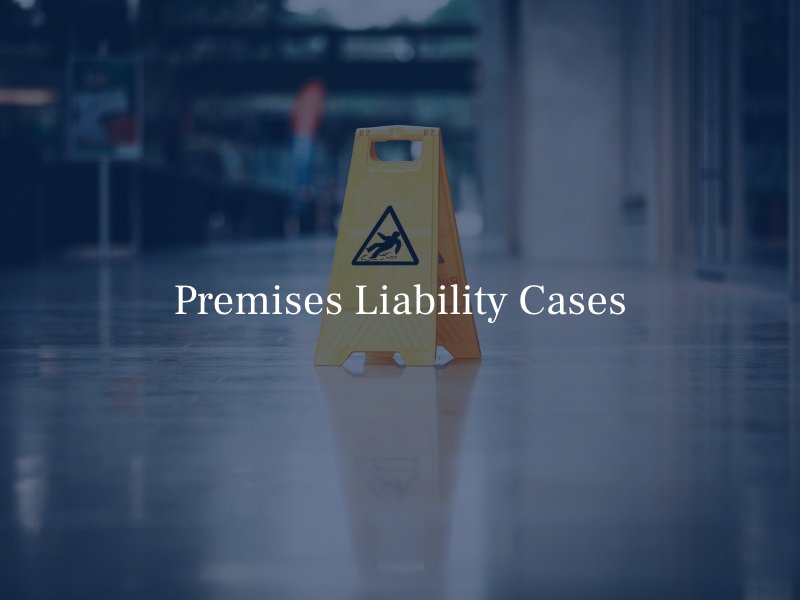Who Can Be Held Liable in a Premises Liability Case?
January 10, 2024 Posted In Premises Liability
Premises liability cases revolve around injuries sustained on another person’s property due to negligence or failure to maintain a safe environment. Identifying the party or parties liable in such cases is crucial for seeking compensation for your injuries. Those commonly include the following.

Property Owners
The primary and most frequently liable party in premises liability cases is the property owner. Whether residential, commercial, or public property, owners have a duty to maintain safe conditions. Negligence on their part, such as failure to address hazards or provide warnings, can result in liability for injuries.
Property Managers or Landlords
In cases where the property owner has delegated responsibilities for maintenance and safety to a property manager or landlord, these individuals or entities may also be liable. If negligence in property upkeep or failure to address known hazards leads to injuries, they may share or bear the entirety of the responsibility.
Tenants
If a tenant has control over the area where an injury occurred and was negligent in maintaining safe conditions, they could be considered responsible. However, the degree of control and responsibility varies, and tenants are generally not held liable for common areas or structural issues.
Contractors and Maintenance Companies
Property owners often hire contractors or maintenance companies to perform repairs or upkeep. If these third parties perform their duties negligently, leading to unsafe conditions and subsequent injuries, they may be liable in a premises liability case.
Business Operators
In commercial premises, business operators or tenants may have the duty to maintain safety. If a customer or visitor is injured due to hazards within the business premises, such as slippery floors or poorly maintained walkways, the business operator may be liable.
Government Entities
In cases involving public property, liability may extend to government entities responsible for maintaining public spaces. This could include parks, sidewalks, or government buildings. However, pursuing claims against government entities often involves specific procedures and limitations.
Invited Guests or Event Organizers
In some instances, liability may extend to individuals or entities hosting events on a property. If an invited guest or event organizer fails to address hazards or ensure the safety of attendees, they may be held accountable for injuries that occur during the event.
Security Companies
Properties with security measures in place may involve liability for security companies if their negligence or inadequate measures contribute to foreseeable harm, leading to injuries.
Proving Premises Liability
In a premises liability claim, several key elements must be proven to establish the property owner’s or occupier’s liability for injuries sustained on their premises.
Duty of Care
Firstly, you must demonstrate that a duty of care existed between yourself and the liable party, indicating that you were lawfully on the premises.
Breach of Duty of Care
Subsequently, it must be established that the property owner or other liable party breached this duty by failing to maintain a safe environment or address known hazards.
Causation
You must then prove that this breach of duty directly caused your injuries.
Damages
Additionally, the injuries incurred must be quantifiable, requiring documentation such as medical records and related expenses to substantiate the damages claimed.
An Attorney Can Help
Identifying the responsible party in a premises liability case requires a thorough examination of the circumstances surrounding the injury. While property owners are often the primary targets, other individuals or entities may share liability based on their degree of control and responsibilities. Consulting a Riverside Premises Liability Lawyer is crucial for understanding the specific dynamics of your case and pursuing appropriate legal action.